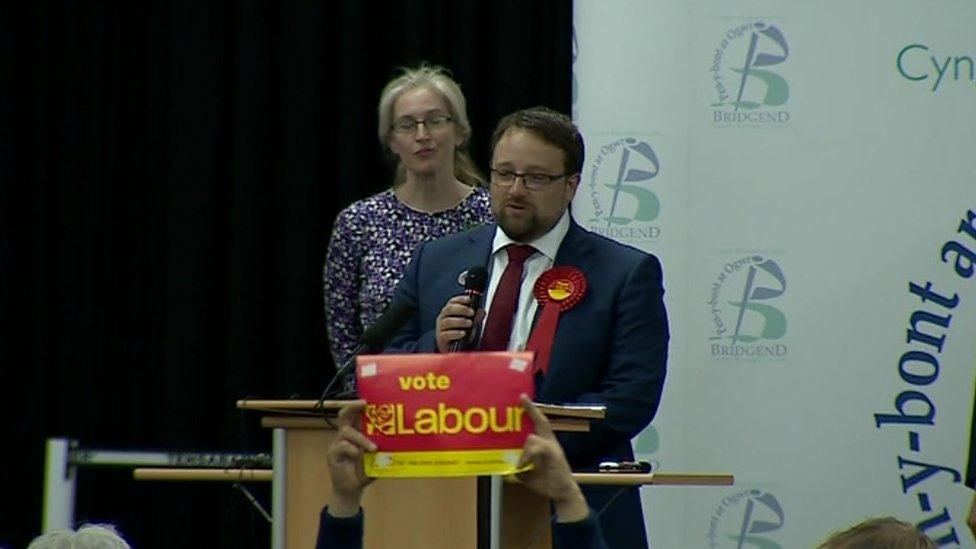Welsh Election 2016: Labour 'likely to seek minority rule'
- Published
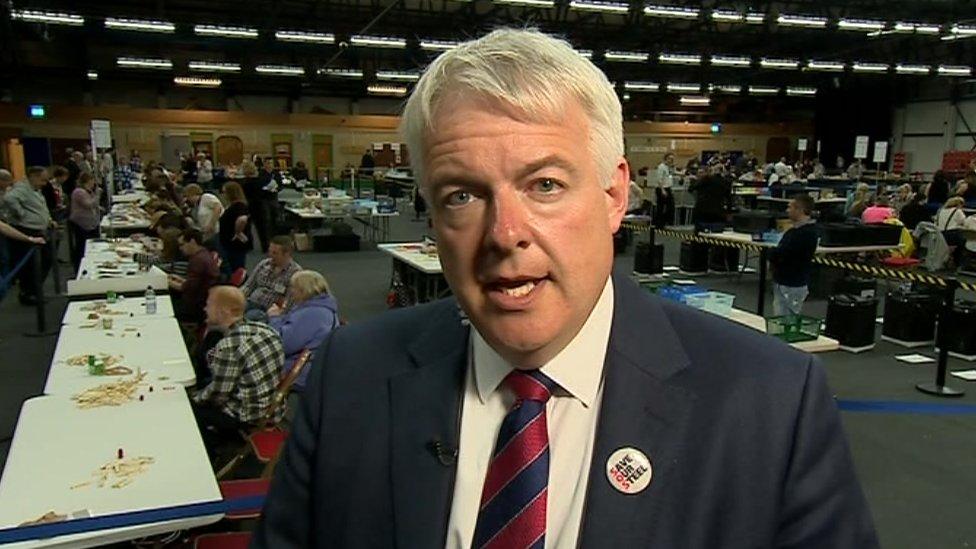
Carwyn Jones says election night was a 'real triumph' for Welsh Labour
Labour is likely to seek to form a minority Welsh Government after winning 29 of the 60 seats in Thursday's election, the first minister has said.
Writing in the Sunday Times, Carwyn Jones called the result a "clear mandate" for his party to govern.
Mr Jones said he would talk to remaining Liberal Democrat AM Kirsty Williams and Plaid Cymru leader Leanne Wood about "areas of common ground".
But he emphasised the conversations would not constitute coalition talks.
Describing the assembly election result as "good", Mr Jones said there were "some tough contests" and in parts of Wales "voters gave us tough messages about what they expect from Welsh Labour".
"Those lessons won't be lost," he said.
'Best option'
The election campaign was seen by Labour as the "start of a conversation we need to have with the Welsh people, not an end point", Mr Jones stressed.
"With that in mind, we will likely look to form a minority government in the coming days.
"The result is a clear mandate to govern, and we believe that is the best option for Wales right now.
"I will be having discussions with Kirsty Williams, the remaining Liberal Democrat, and Leanne Wood, the Plaid leader, about upcoming issues and areas of common ground that we can work on but these won't constitute coalition talks."
He said the two major issues the new administration "urgently" needed to address were the steel crisis and the EU referendum.

Analysis by Nick Servini, BBC Wales political editor
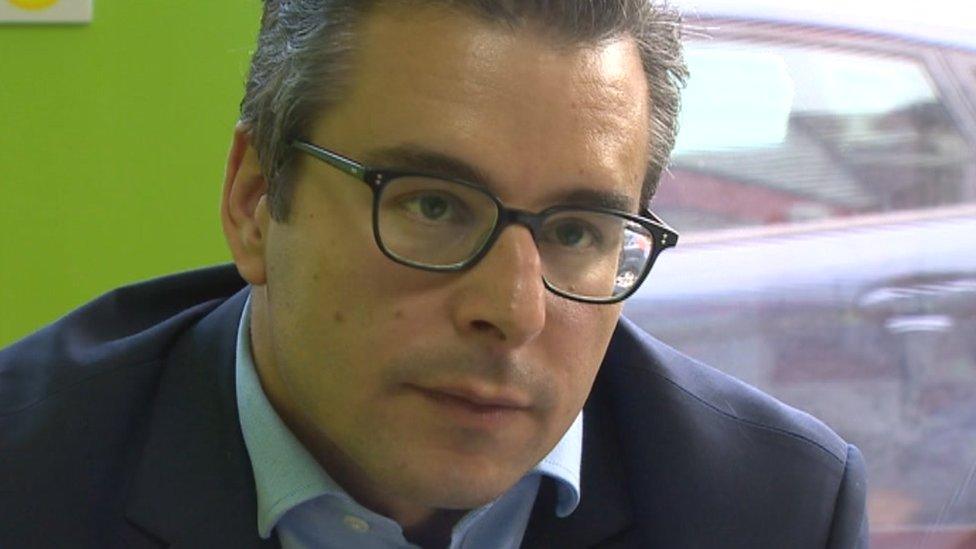
Ironically, the key relationship in the new assembly term will be between Labour and Plaid - a relationship which fell apart spectacularly right at the end of the last term when Plaid withdrew its support for new public health legislation.
Labour has agreed deals with Plaid in recent years but crucially it then had the Lib Dems as a possible alternative.
This time round Plaid is the only game in town as Labour doesn't have an overall majority and the indications are that Plaid will play hardball in any negotiations.
There won't be a coalition because at this stage no-one wants one.
But expect talks to focus on areas like social justice and economic development where there's plenty of common ground.
The elephant in the room will be the proposed £1bn M4 relief road which is Labour's preferred option but something strongly opposed by Plaid.

Vaughan Gething, Labour's deputy health minister in the previous assembly, told the BBC's Sunday Politics Wales programme he was "quite relaxed" about minority rule.
He said Plaid Cymru had "ruled themselves out" of a coalition and Labour could not do a deal with UKIP or Tory AMs.
On Friday, Plaid leader Leanne Wood said she could not see how her party could "prop up" Labour "in any way".
Mr Gething said of Plaid: "We know there are differing views within that party as to what they should do.
"We've already made it clear that we could not and would not do a deal with UKIP and the Tories.
"So there will be a sensible conversation about what the programme for government will look like, and about how we can work together as we have done in the last five years, because we didn't have a majority a couple of weeks ago."
Labour had 30 AMs before the election.
The new assembly is expected to meet for the first time on Wednesday.
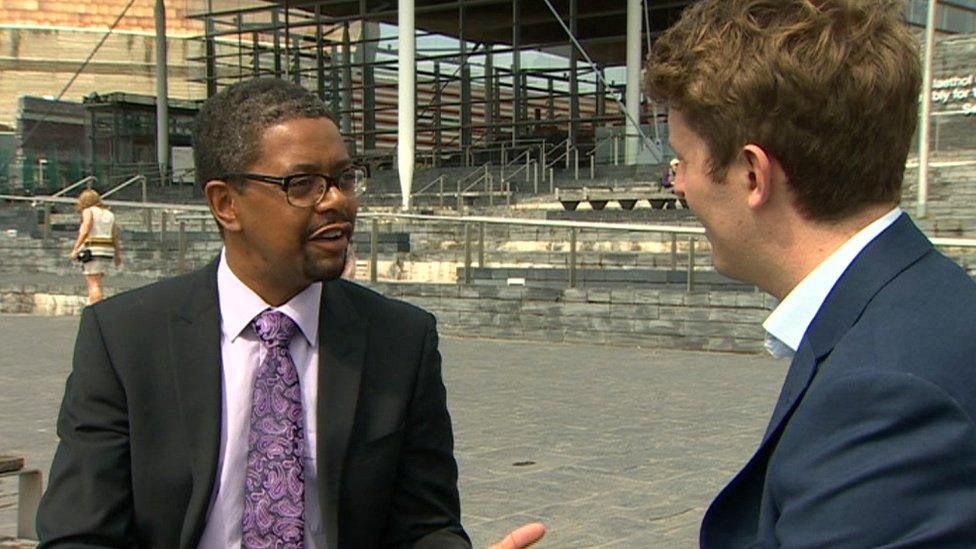
Vaughan Gething was talking to BBC Wales political reporter James Williams
- Published8 May 2016

- Published8 May 2016
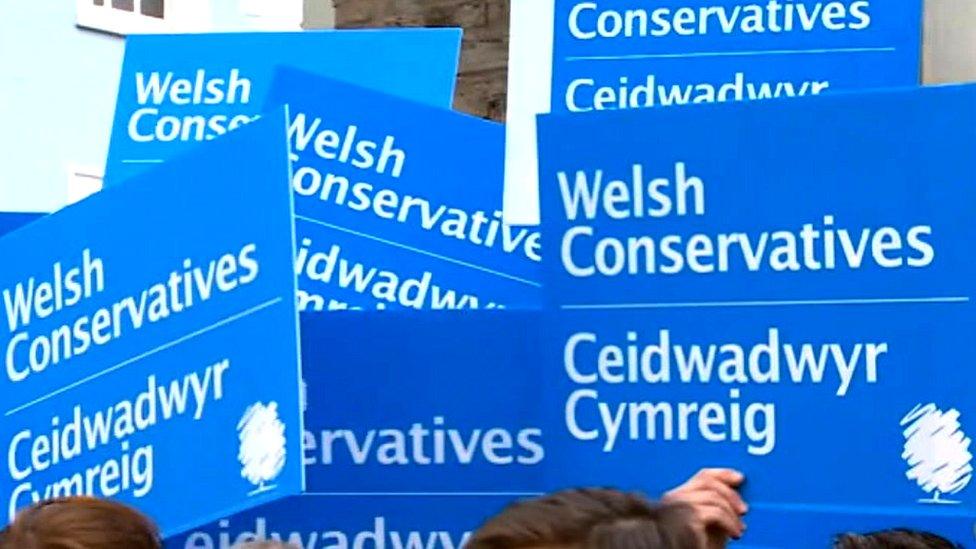
- Published7 May 2016
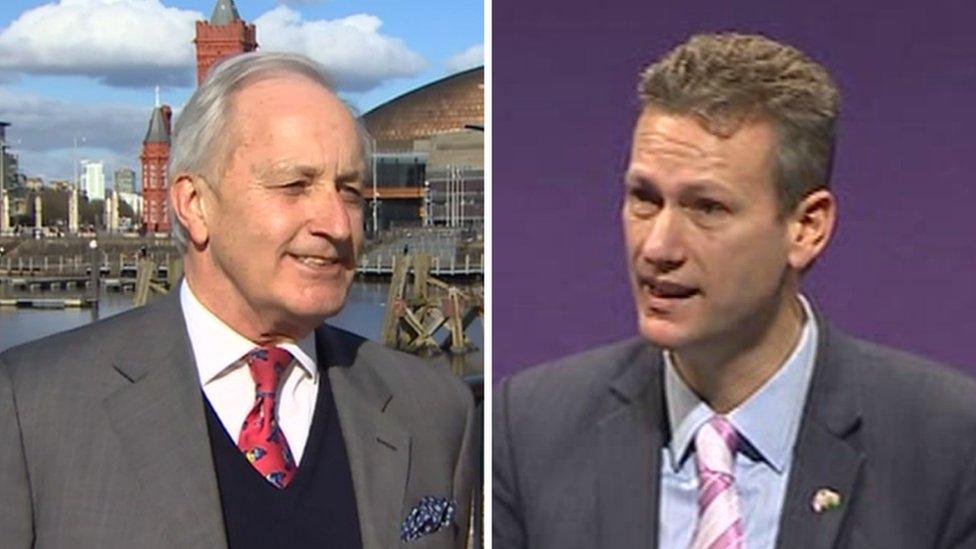
- Published6 May 2016
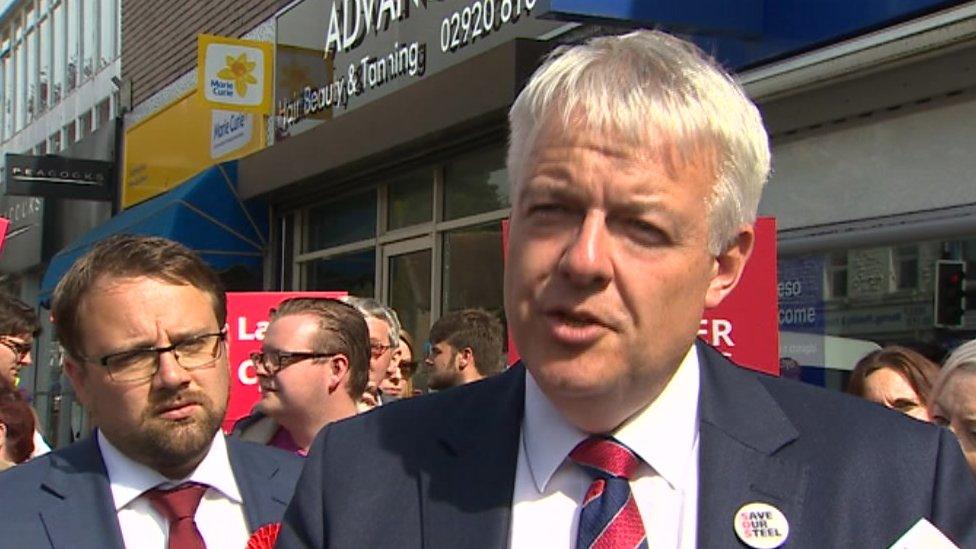
- Published6 May 2016
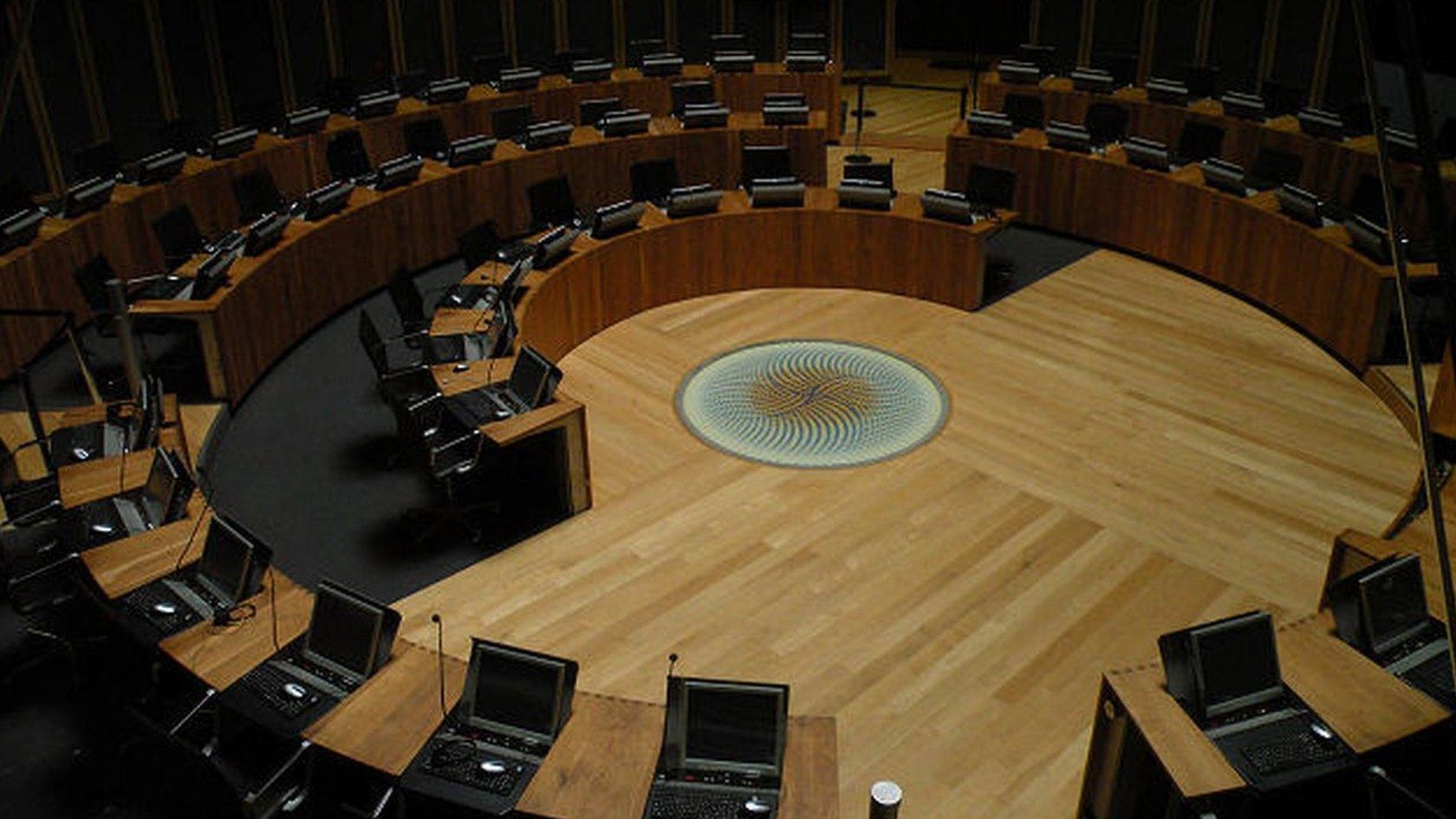
- Published7 May 2016
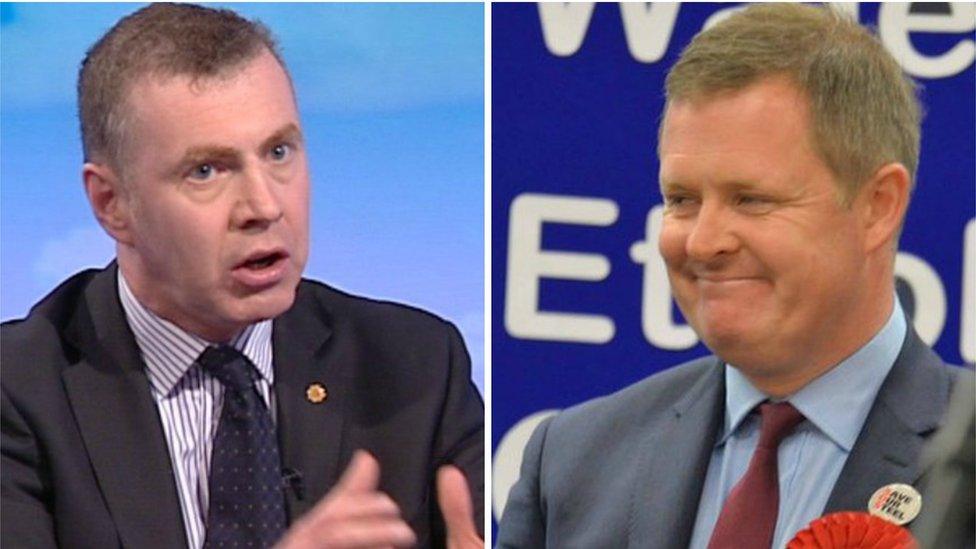
- Published6 May 2016
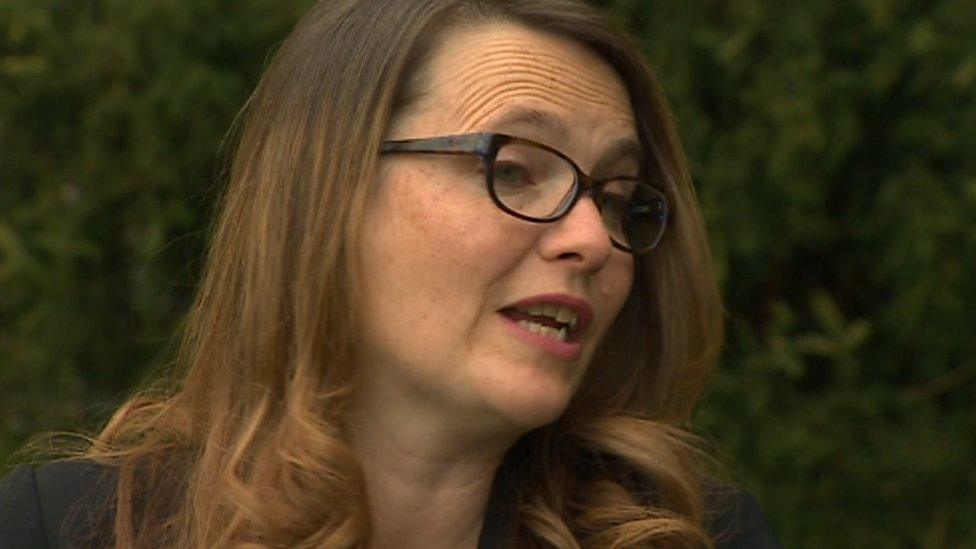
- Published10 May 2016
